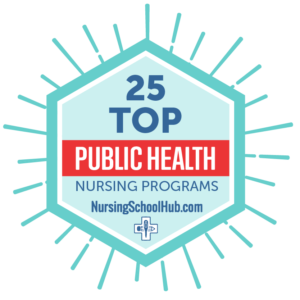
The top Public Health Nursing degrees are programs that train nurses to work specifically in the public health sector. The public health sector is growing, and there is a role in public health for every part of the medical field, especially nurses. A public health nursing degree is most valuable at the master’s level or above. Through a master’s degree program, the student will learn about medical issues that impact communities – such as communicable disease prevention – and solutions to resolve these issues. A Master of Public Health (MPH) degree will cover topics such as health services management, health policies, and epidemiology, while an MSN or DNP prepares nurses for advanced practice and nursing administrator roles.
Public health nursing programs are diversified to help prepare as many candidates as possible to enter the field. A nurse may choose to earn a Master of Science in Nursing with a Public Health specialization in lieu of a Master of Public Health degree. Dual track public health nursing programs are accelerated options for those who want to earn either a MSN/MPH or DNP/MPH simultaneously. For the former option, both a master’s degree and a doctoral degree are conferred. With a DNP degree, the individual can work as a nurse practitioner in a public health setting.
How We Ranked the Best Nursing and Public Health Degree Programs
Featured Programs
Working nurses have to be practical about their educational and career choices, and Nursing School Hub understands that. That’s why NSH rankings focus only on accredited, reputable institutions that are known to provide a solid return on students’ investment. The best public health and nursing dual degree ranking is based on three factors: Cost, Salary Potential, and Student Reviews, with data from IPEDS, College Scorecard, and Niche.
1. University of California, San Francisco
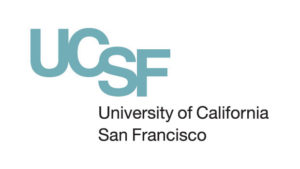
The University of California San Francisco School of Nursing offers an MS in Advanced Public Health Nursing (APHN). This specialty focuses on providing a strong foundation that gives students the skills they need to evaluate existing public health programs and create new ones. Students learn how to promote health and wellness, write grants, provide leadership in public health, advocate for changes in health policy, and fight for changes that make healthcare accessible to everyone, regardless of race or income level.
Faculty members at the University of California San Francisco School of Nursing are leaders in many areas of nursing research, and students at the school frequently work with faculty on joint research projects. The school’s values spell out CARING (Community, Accessibility, Respect, Integrity, New knowledge, Growth) and PRIDE (Professionalism, Respect, Integrity, Diversity, Excellence). Every year for the past ten years, the UCSF School of Nursing has been #1 or #2 in National Institutes of Health research funding.
Degree: MSN Advanced Public Health Nursing
2. University of Pennsylvania

The University of Pennsylvania Center for Public Health Initiatives offers a master’s in public health and nursing dual degree (MSN-MPH) that requires completion of the core curricula for both the MSN in Health Leadership and MPH programs. The required public health courses include Introduction to Biostatistics, Environmental & Occupational Health, Public Health Administration and Policy, and Introduction to Principles and Methods of Epidemiology. The nursing courses include Leadership Development in Healthcare, Systems Thinking in Patient Safety, and Advanced Roles in Administrative Nursing Practice.
The Center for Public Health Initiatives at the University of Pennsylvania works to advance public health scholarship, research, and practice. The school’s mission is to produce leaders in the public health field, encourage cross-disciplinary work, and advocate for high standards in the field of public health. Students can also earn dual nursing and public health degree in the following areas of study: nurse-midwifery, pediatric nurse practitioner, adult acute care nurse practitioner, and family health nurse practitioner.
Degree: MSN/MPH
3. University of Wisconsin

The School of Medicine and Public Health at the University of Wisconsin-Madison offers a Nursing to Master of Public Health Advanced Degree Option that enables nursing students to gain acceptance to the MPH program early and start taking courses toward their MPH degree while still attending nursing school. Students typically work part-time while completing their MPH over a 3- to the 5-year period following graduation from nursing school.
The University of Wisconsin-Madison School of Medicine and Public Health makes improvements in the health and well-being of people everywhere by promoting social responsibility, service, science, and academic excellence. The school is actively working to find new ways to diagnose, treat, and prevent diseases by combining public health principles with medical knowledge and research. The school has a reputation for landmark breakthroughs in research, including work with stem cells, HIV, and cancer.
Degree: Nursing to MPH
4. University of Minnesota

The dual Doctor of Nursing Practice (DNP) and Master’s in Public Health (MPH) degree program from the University of Minnesota School of Nursing helps nursing students use public health knowledge to implement public health solutions to health and wellness problems that affect their communities. Adding the MPH degree to the DNP adds only two semesters of study, and in some cases, the student may be able to use the DNP project to meet the requirements for the MPH project as well.
The Bentson Healthy Communities Innovation Center at the University of Minnesota School of Nursing offers 11,000 square feet for research, education, and professional development. The center features state-of-the-art simulation technology, telehealth technology, and mobile health records systems and is designed to facilitate team simulation training experiences. Fourteen credits from the DNP program transfer to the MPH program, saving both time and tuition.
Degree: DNP/MPH
5. University of Washington
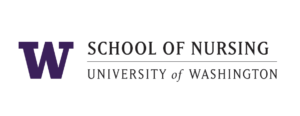
The DNP in Population Health Nursing & Global Health MPH is a dual nursing and public health degree available from the University of Washington School of Nursing. This program is designed for nursing students who want to address issues in population health nationally or globally. Students are trained for leadership positions in global health. They learn how to engage with communities, assess their needs, and help develop health and wellness programs that improve public health in the community.
The UW School of Nursing is an international leader in nursing research and teaching. The school makes a real difference in the world by producing excellent nurses, leaders, and researchers. The school values equality, inclusion, and diversity and seeks to ensure that healthcare is available to everyone equally. Other values include integrity, social responsibility, excellence, accountability, and collaboration. The concurrent programs take approximately four years to complete, which is one year less than if they were taken separately.
Degree: DNP/MPH
Visit the program
6. University of Texas Health Science Center – San Antonio
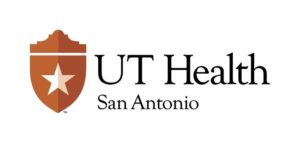
The DNP: Public Health Nurse Leader program at the UT Health San Antonio School of Nursing allows students to earn a public health certification while earning their DNP degree. The program is split fairly evenly between nursing leadership courses, evidence-based courses, public health courses, and DNP major courses. Students must have at 1,000 clinical/practicum hours between their bachelor’s and DNP.
The UT Health San Antonio School of Nursing is home to a 7,300 square foot simulation hospital and skills laboratory called the Center for Simulation Innovation. The school uses the center for clinical training exercises involving mannequins and other educational tools. Available simulations include a dementia tour and a poverty simulation. The school also operates six clinics and a mobile health unit. The school has a 98% NCLEX pass rate and more than 11,000 alumni. UT Health has more than 400 partnership agreements to help students gain real-world clinical experience. The school guarantees that it can obtain preceptors for its students.
Degree: DNP – Public Health Nurse Leader
7. Case Western Reserve University

In addition to the master of public health and nursing dual degree (MSN/MPH), the Case Western Reserve University Department of Population and Quantitative Health Sciences offers ten other MPH dual degrees with other departments. Most dual degree programs require adding one year of the second program, so the dual degree is typically completed in five years. Students who pursue a dual degree will have advisors from both programs to help guide their studies.
The Department of Population and Quantitative Health Sciences understands that things like geography, genetics, and behavior impact the health of people within a community. The department trains students to recognize factors that might negatively impact health outcomes and devise methods of combating those factors in order to improve the overall health of the community. The faculty at Case Western Reserve University is committed to helping students make a difference in the public health field.
Degree: MSN/MPH
Visit the program
8. University of South Florida

The College of Nursing at the University of South Florida offers an Adult Nurse Practitioner (MS) and Public Health (MPH) dual degree in conjunction with the College of Public Health. The program prepares nurses to work as adult nurse practitioners in a variety of work settings, from clinical to administrative and managerial. Upon graduation, students are able to qualify for licensure in Florida as Advanced Registered Nurse Practitioners in adult health.
The College of Public Health at USF Health actively works to solve public health problems and come up with solutions that give all people everywhere the right to be healthy. The school runs ten centers and institutes, including the Sunshine Education & Research Center, which receives $1 million in support annually from the National Institute for Occupational Safety and Health at the Centers for Disease Control and Prevention. Many of the core courses required for this program are available online.
Degree: MSN/MPH
9. University of Colorado Denver

The DNP/MPH dual degree offered by the College of Nursing at the University of Colorado Anschutz Medical Campus and the Colorado School of Public Health offers students the opportunity to earn two degrees at once. Since the dual degree requires fewer credits than students would need to earn both degrees separately, students save both time and money. The program requires the completion of 1,000 post-baccalaureate practicum hours.
The Colorado School of Public Health is a collaboration between Colorado State University, the University of Colorado, and the University of Northern Colorado, all of which are leaders in academics and research. The school has ten research centers and maintains a physical presence on the campus of each of the collaborating universities. The College of Nursing at the University of Colorado is affiliated with the University of Colorado Hospital, Children’s Hospital Colorado, and Veterans Affairs Medical Center.
Degree: DNP/MPH
10. University of Alabama Birmingham

At the University of Alabama Birmingham School of Public Health, students can complete the Master of Science in Nursing/Master of Public Health in Maternal & Child Health Policy & Leadership (MSN/MPH) dual degree online—at least part of it. The MPH portion of the program can be completed either on-campus, online, or in a combination. The school also offers an MSN/MPH Master of Sciences in Nursing/Master of Public Health in Health Behavior dual degree.
The University of Alabama Birmingham School of Public Health is committed to figuring out how to create conditions that improve population health. The school examines issues such as where people live, how they work, and what they do for recreation to see how these things affect the health of the community and determine how to make it easier for people to live healthier lives. Some issues the school is working on at UA Birmingham include the impact of homicide on public health and contamination of the environment. The School of Public Health has partnerships with many local businesses and government agencies in order to provide valuable internships for its students.
Degree: MPH/MSN — 2 options
11. Emory University
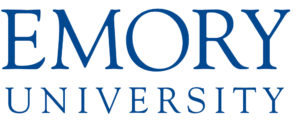
The MSN-MPH dual degree program from the Nell Hodgson Woodruff School of Nursing and the Rollins School of Public Health at Emory University takes 6-7 semesters to complete full-time. Students can choose to attend part-time in order to continue working while attending school. Following graduation, students will be prepared to sit for the Certified Nurse Midwife or Nurse Practitioner examination. Preference for admission is given to students with a GPA of 3.0 or higher. The school has students working in more than 500 clinical sites around the country.
The Nell Hodgson Woodruff School of Nursing values collaboration, excellence, innovation, leadership, and social responsibility. The school is committed to producing competent, caring nurses and to discovering new ways to solve complex health problems. Atlanta is known as the Public Health Capital of the World. It is home to the Arthritis Center, the U.S. Centers for Disease Control and Prevention, and other well-known public health organizations.
Degree: MSN/MPH
12. University of Maryland, Baltimore

The Master of Science/Master of Public Health (MSN/MPH) from the University of Maryland School of Nursing allows students to earn two degrees in just three years—an MSN from the University of Maryland School of Nursing and an MPH from the University of Maryland School of Medicine. The two degrees have 15 shared credits that apply to both degrees. Students must be admitted to both programs in order to complete the dual degree.
The University of Maryland School of Nursing has been working to improve the nursing field for 130 years. The school has more than 300 sites where students can gain clinical learning experiences. The School of Nursing has a Wellmobile that provides healthcare to Maryland residents who have insufficient health coverage. The University of Maryland School of Nursing ranks #9 in National Institutes of Health funding.
Degree: MS/MPH
13. Vanderbilt University

The Doctor of Nursing Practice (DNP) and MPH dual degree from Vanderbilt University is intended to prepare nurses for executive leadership positions. The program features a curriculum with topics such as healthcare for diverse populations, population health initiatives, advanced clinical practice models, and improved public health outcomes. The nursing and public health degree from Vanderbilt University includes three core requirements for graduation: 36 doctoral credits, 500 practice hours, and a DNP project. The rigorous coursework prepares graduates for the challenges of the medical field.
Located in Nashville, Vanderbilt University is one of the state’s largest private colleges. Comprised of 10 schools, it is also home to one of the best hospitals in the nation, the Vanderbilt University Medical Center. A large percentage of undergraduates participate in Greek Life as well as the college’s popular study abroad program. Top-ranked degree programs from the university include nursing, business, engineering, and law.
Degree: DNP/MPH
14. New York University

The MSN MPH dual degree online program is a collaborative effort between the Global College of Public Health and New York University. The degree track focuses on executive leadership roles for nurses with multiple concentrations available. NYU’s MSN MPH dual degree online options include midwifery, nursing education, nursing informatics, nursing administration, mental health, geriatric care, and pediatrics. A total of 85 credits are needed for graduation from these top-ranked nursing programs.
New York University has been established in the heart of the city for almost 200 years. With the main campus located nearby Greenwich Village, the college has academic buildings throughout the area’s city blocks. The largest undergraduate school at New York University is the College of Arts and Sciences. New York University has outstanding graduate-level programs through the top-ranked Stern School of Business, School of Medicine, and Silver School of Social Work. New York University has one of the highest post-graduation job placement rates in the state.
Degree: MSN/MPH
15. University of Connecticut

A public health and nursing dual degree from the University of Connecticut puts graduates at a distinct advantage in the job market. The nurse will earn a master’s degree in nursing while simultaneously getting credit toward a master’s in public health. For admissions, students must meet the pre-requisites for both master’s level programs. Advanced nursing classes are completed in the dual degree track along with courses that cover topics such as environmental health, public health research methods, epidemiology, and health administration. Each degree will require 36 credits and a capstone project for graduation. The University of Connecticut dual nursing degree programs have high graduation and job placement rates.
The University of Connecticut is a top 75 nationally ranked college with a diverse and lively campus atmosphere. Although living on campus is not required, more than half of undergraduates choose to reside on the college grounds. The college is considered a highly ranked sports school with athletes competing in the NCAA Division I. The UConn Huskies have an avid following with numerous championships won throughout the decades. Although all schools within the university are renowned nationally, the college’s education department is considered one of the best in the country.
Degree: MSN/MPH
16. Johns Hopkins University

Johns Hopkins University’s nursing and public health degree is considered one of the most prestigious in the field. The MSN and MPH programs prepare graduates for performing advanced nursing practices in public health settings. The curriculum focuses on medical care as a team and how to address the needs of high-risk populations all around the world. Graduations required for the nursing and public health dual degree is 36 credits and 504 clinical hours. Johns Hopkins University’s program is very flexible with a low on-campus commitment of just 8 credits.
Located in an urban area of Baltimore, Johns Hopkins University is also a short drive away from several major east coast cities including Philadelphia, New York, and Washington DC. The U.S. News & World Report has repeatedly ranked the university as being one of the top 10 colleges in the nation. Due to the college’s highly rated medical degree programs, admissions to the college are very competitive with only 11 percent of all applicants gaining acceptance.
Degree: MSN/MPH
17. University of Kansas Medical Center
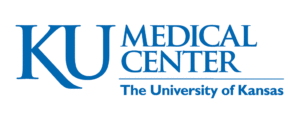
Students choose the nursing and public health degree from the University of Kansas Medical Center because of how much hands-on experience they get during their course completion. The dual degree track can be completed by nurses at both the beginning or mid-level of their careers and appeal to those who are looking for advancement opportunities. Nurses take courses related to advanced nursing practices, medical organizational goals, communication planning, environmental health, and public health promotion. The affordable dual nursing degree from the University of Kansas Medical Center requires 39 credits for conferment.
The University of Kansas Medical Center is part of the state’s University of Kansas system of colleges. The college’s campus encompasses more than 1,000 acres and has a city-like feel. In-state costs for students are very modest with out-of-state students paying more than double the cost for attendance. The highest-ranking degree programs from the college include special education, public administration, speech pathology, physical therapy, nursing, and law. A highlight of the University of Kansas is a renewable scholarship program that allows undergraduate students to receive funding each year for their education.
Degree: MSN Public Health Nursing
18. University of San Francisco

To achieve the highest level of nursing education possible, the University of San Francisco provides an MPH/DNP Family Nurse Practitioner option for students. To be considered for the dual nursing degree program, the applicant must have at least a BSN. The University of San Francisco’s MPH DNP degrees will prepare graduates to work as family practitioners in public health centers. The hybrid program allows working students to take most of their classes online with two monthly campus visits required. The University of San Francisco is highly convenient through weekend class times and a flexible clinical hour requirement.
The urban campus of the University of San Francisco has a lively atmosphere with hundreds of clubs, fraternities, and sororities available to students. The private college is a Jesuit Catholic university that was founded within the Bay Area more than 150 years ago. The college is home to highly competitive NCAA Division I West sports teams with a number of top professional athletes being past alumni.
Degree: MPH/DNP Family Nurse Practitioner
19. Nebraska Methodist College
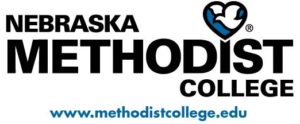
A nursing and public health degree from Nebraska Methodist College gives the student a chance to earn his or her doctorate within an accelerated timeframe. The CCNE-accredited degree program has a requirement of 50 credits and 960 clinical hours to receive a DNP. Public health and advanced nursing courses can be completed within two years for full-time students and three to four years for part-time students. Nebraska Methodist College graduates of the DNP with a specialization in public health often become researchers, educators, and executives in the nursing field.
Due to the small student body of fewer than 800, the Nebraska Methodist College does not appear on nationally-ranked college lists. However, the small student body allows for personalized attention with most classes having fewer than 13 students. The college has a very strong health sciences department with the top majors being nursing, occupational therapy, physical therapy, radiology, and imaging studies.
Degree: DNP- Public Health Policy
20. Cedarville University
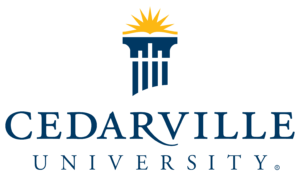
The MSN with a Global Public Health Nursing area of focus from Cedarville University was created to serve nurses interested in community-based care either in the U.S. or abroad. Graduates from the program are equipped to travel throughout the world to provide healthcare and compassionate care ministry to those in need. The Global Public Health MSN degree is offered fully online with both full-time and part-time completion options with conferment eligibility achieved after course completion and 300 clinical hours.
Cedarville University is a modest-sized college located in southwest Ohio. The university is a highly rated regional institution with a Baptist affiliation. Many of the degrees from the college require religious education credits as part of the degree plan. More than 150 programs of study are currently offered at Cedarville University with the MSN, M.Div., and MBA degrees being recent additions to the graduate catalog. In addition to Global Public Health Nursing, Cedarville’s MSN offers Family Nurse Practitioner, Pediatric Nurse Practitioner, Leadership, and Education specializations.
Degree: MSN Global Public Health Nursing
21. University of Nevada Reno

The MSN/MPH dual degree online from the University of Nevada is a convenient and affordable way to further a nurse’s education. To be accepted to both programs, the student must have a 3.0 GPA, GRE scores, and at least 12 credits in health-related studies. The dual degree programs have multiple tracks available with graduation requirements ranging from 80 to 90 credits. Courses found in the nursing dual degree track include health and environment, epidemiology, research methods for public health, and advanced nursing for specialized populations.
The Reno campus of the University of Nevada is located in the historic casino city. The undergraduate population enrolled at the university is large with more than 17,000 students. Although many of the university’s programs have traditional course loads, the college has a department that specializes in earthquake research and has one of the biggest earthquake simulators in the world.
Degree: MSN/MPH
Visit the program
22. University of North Carolina at Charlotte
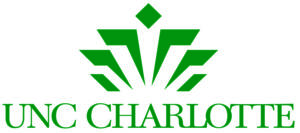
The MSN Community Public Health Nursing degree from the University of North Carolina at Charlotte is intended to educate future leaders in the health field. The program can be completed on a part-time basis with 38 credits needed from public health classes. Graduates from the University of North Carolina’s dual nursing degree track have found positions in wellness centers, government agencies, home health centers, and community organizations.
One of the largest universities in the state, the University of North Carolina at Charlotte has an undergraduate population that exceeds 24,000. In-state tuition is very low with out-of-state subject to higher annual costs. The University is home to numerous public research projects including those in the field of education and urban development.
Degree: MSN – Community Public Health Nursing
23. La Salle University
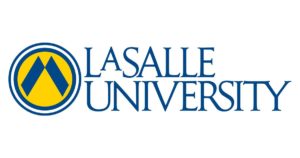
With the public health and nursing dual degree from La Salle University, students learn advanced nursing care by providing skills such as public health assessments, medical program planning, and health policy development. A total of 62 graduate credits are required for graduation along with 512 clinical hours and a capstone project. Success rates are high for La Salle University MPH graduates with placements at hospitals, government agencies, and community organizations.
With La Salle University located in Philadelphia, students have located nearby the top corporations and medical centers on the east coast. The private Christian college offers small class sizes, career mentoring, and workshops. La Salle sponsors more than 100 campus clubs, intramural sports teams, and Division I Atlantic athletic teams.
Degree: MSN/MPH
24. Rush University
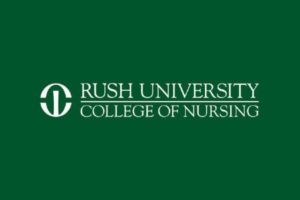
The DNP-Advanced Public Health Nursing degree from Rush University focuses on key topics such as population health promotion, medical prevention techniques, healthcare quality improvement, and community program management. The DNP program is completely fully online with a part-time commitment only. For graduation, students need to finish four terms of courses and 1,176 clinical hours. Rush University promises a high return on investment with almost all students finding job placement within six months of graduation.
Rush University is a small college located in the urban center of Chicago. More than half of all students are enrolled in the school’s graduate and doctoral degree programs. Rush University’s College of Nursing was ranked by U.S. News & World Report as the fourth-best graduate nursing degree program.
Degree: DNP Advanced Public Health Nursing
25. Simmons University and Harvard University

Simmons University offers an accelerated MSN/MPH dual degree program in partnership with Harvard University’s Chan School of Public Health. Students who complete the program earn both an MS in Primary Health Care Nursing and an MPH from Harvard. Applicants must be RNs with a bachelor’s degree and a minimum 3.0 GPA and be accepted into both programs.
Simmons University is a small, private university with a low 11:1 student-to-faculty ratio and an average class size of 14. The school has received a variety of research awards and always tries to put its students’ needs first. The Harvard T.H. Chan School of Public health employs experts from many fields to train and prepare students to become tomorrow’s leaders in public health. The Harvard T.H. Chan School of Public Health has made many advancements in the field of AIDS and HIV research.
Degree: MSN/MPH
What Can I Do with a Master’s in Public Health Nursing?
Public health nursing programs give the graduate more opportunities for advancement in the medical field. With a public health nursing degree, a nurse can secure jobs at community health agencies, hospitals, private healthcare practices, and government offices. Public health jobs are available locally, nationwide, and even internationally. These workers look for solutions to community-wide medical issues and will educate the public about how to stay healthy.
Nursing jobs in public health are readily available in all areas of the world. Those who graduate with a dual DNP/MPH degree, he or she may choose to work as a public health nurse practitioner or nurse-midwife. Additionally, nurses can specialize in the field of pediatrics or gerontology. Not all graduates decide to work as public health nurse practitioners. Public health nursing jobs also include positions in the field of education. Graduates may be hired by community health agencies to educate others about public health concerns. They may travel to different hospitals, schools, or businesses to talk about community health problems. Some individuals become journalists and write for publications about medical issues impacting the community.
Global public health nursing jobs can involve becoming epidemiologists and studying different diseases that pose a threat to society. This type of position may require travel to research diseases originating in different areas of the world. Specializations are available in these types of positions too. For instance, the nurse may become a tropical disease or HIV specialist. Some degree holders find positions with non-medical agencies. For instance, legal firms will hire nurses with public health expertise for consulting purposes. Public health degree graduates are also hired by non-profit organizations to take on leadership roles, including director and project coordinator.
How Much Can I Make with one of the Public Health Nursing Degrees?
Public health nursing salary figures differ based on what type of position is secured post-graduation. A master’s in public health nursing salary for epidemiologists is close to $70,000 per year. Biostatisticians who are responsible for collecting and analyzing public health data have an average income of $88,000 annually. Another high-paying master’s in public health nursing salary position is health engineer. As a health engineer, the professional will identify safety hazards and make recommendations on how to resolve them. Health and safety engineers make approximately $89,000 yearly. Nurse educators and community health nurses have a mean annual wage in excess of $81,000 per year.
Doctoral level salary figures will usually exceed $100,000. A nurse practitioner with a DNP and MPH will have a median annual salary of $110,030, according to the Bureau of Labor Statistics. Advanced public health nurse salary for a high-ranking administrator would fall in the range of $85,000 to $105,000 per year.
Is the Any Public Health Nurse Certification?
In lieu of a degree, a registered nurse may choose to look at public health nurse certification options. Previously, an Advanced Public Health Nursing (APHN) Certification was available. However, this program has recently retired, although a current APHN-certified public health nurse could still renew his or her certification every five years. As an alternative, nurses can take the Certified Public Health (CPH) Exam. CPH certification is available to public health professionals, in particular, generalist nurses who specialize in public health.
A certified public health nurse has proven a mastery over contemporary community health issues. Benefits of CPH certification include the potential for promotions, increased salary, and career advantages over peers. To take the Certified Public Health Exam, the applicant must have either taken public health courses at an accredited college and earned a graduate-level degree. Some public health degree programs will include CPH certification as a graduation requirement. Alternatively, current workers can qualify for public health nurse certification if they have at least a bachelor’s degree and five years of public health work experience.
Related: